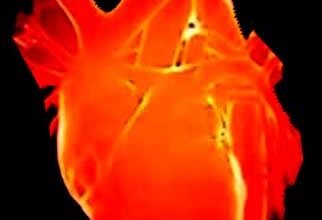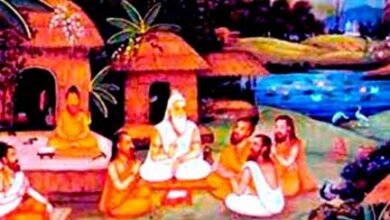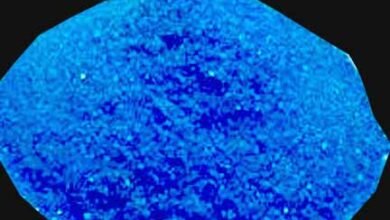
रसायन विज्ञान से संबंधित-135.
|
1. What is Air? = mixture of gases. 2. What is Bleaching Powder? = Compound 3. Ammonia? = Chemical Compounds. 4. Decomposition of vegetables into compost is an example of which reaction? = Exothermic 5. Smell in onion-garlic is caused by the presence of which element? = Sulfur-containing chemicals. 6. The gas which is used in the manufacture of vegetable ghee? = Hydrogen. 7. Element which is not found in fertilizer? = Chlorine. 8. Which process is followed in the production of biodiesel? = Transesterification. 9. Which electronic configuration is for a metal element? = 2, 8, 8, 2. 10. What is the electronic configuration of an atom with atomic number 20? = 2, 8, 8, 2. 11. The maximum number of electrons in the second orbit of an atom of an element can be? = 08. 12. What is the number of electrons in an atom of atomic number Z and mass number A? = Z. 13. What is the number of protons in element 92U235? = 92. 14. What is the number of neutrons in 92U238? = 146. 15. The atomic number of sodium is 11 and the atomic mass is 23. It will contain the number of electrons, neutrons, and protons. = 11, 12, 11. 16. The atomic number of an element is 35 and it has 18 electrons, then the number of protons in it will be? = 18. 17. If an atom of an element does not have 2 protons, 2 neutrons, and 2 electrons, then what is the mass value of the element? = 04. 18. What is the substance formed after the emission of 1 N (beta) from 11Na22? = Mg. 19. Which is used to absorb neutrons? = Hafnium and Boron. 20. Isotones? = Neutron in the same number. 21. The isotope of an atomic nucleus is the nucleus in which? = The number of protons is the same, but the number of neutrons is different. it occurs. 22. What is the number of isotopes of hydrogen? = 03. 23. A radioactive element with large deposits in India? = Thorium. 24. Which is a radioisotope used to control leukemia? = Cobalt-60. 25. What is a water-soluble base called? = Alkali. Dr. Amrendra Kumar. ============ =========== ============ 1. वायु क्या= है? = गैसों का मिश्रण. 2. विरंजक चूर्ण (Bleaching Powder) है? = यौगिक 3. अमोनिया है ? = रासायनिक यौगिक. 4. शाक- सब्जियों का विघटित होकर कम्पोस्ट बनना किस अभिक्रिया का उदाहरण है? = उष्माक्षेपी. 5. प्याज-लहसुन में गंध किस तत्व की उपस्थिति के कारण होती है? = सल्फर युक्त रसायन. 6. वह गैस जो वनस्पति घी के निर्माण में प्रयुक्त होती है, वो है? = हाइड्रोजन. 7. तत्व जो उर्वरक में नहीं पाया जाता है? = कैल्शियम कार्बोनेट. 8. बायोडीजल के उत्पादन में कौन-सी प्रक्रिया अपनायी जाती है? = ट्रांसएस्टंरीफिकेशन. 9. कौन-सा इलेक्ट्रॉनिक संरूपण धातु तत्व के लिए है? = 2, 8, 8, 2. 10. परमाणु क्रमांक 20 वाले परमाणु का इलेक्ट्रॉनिक विन्यास है? = 2, 8, 8, 2. 11. किसी तत्व के परमाणु की दूसरी कक्षा में इलेक्ट्रॉनों की अधिकतम संख्या हो सकती है? = 08. 12. परमाण्विक संख्याक Z एवं द्रव्यमान संख्या A के एक परमाणु में इलेक्ट्रॉनों की संख्या है? = Z. 13. तत्व 92U235 में प्रोटॉन की संख्या है ? = 92. 14. 92U238 में न्यूट्रोनों की संख्या है? = 146. 15. सोडियम की परमाणु संख्यां 11 तथा परमाणु द्रव्यमान 23 है. इसमें इलेक्ट्रॉन, न्यूट्रॉन एवं प्रोटॉन की संख्या होंगी? = 11, 12, 11. 16. किसी तत्व की परमाणु संख्या 35 है तथा उसमें 18 इलेक्ट्रॉन हैं, तो उसमें प्रोट्रॉनों की संख्या होगी? = 18. 17. किसी तत्व के परमाणु में 2 प्रोट्रॉनों, 2 न्यूट्रॉन और 2 इलेक्ट्रॉन हों, तो उसे तत्व की द्रव्यमान संख्या कितनी होगी? = 04. 18. 11Na22 से 1 ß (बीटा) उत्सर्जन के बाद बनने वाला पदार्थ है? = Mg. 19. न्यूट्रोनों का अवशोषण करने हेतु किसका प्रयोग किया जाता है? = हेफ़नियम और बोरान. 20. आइसोटोन (Isotones) होते हैं? = समान संख्याक में न्यूट्रॉन. 21. किसी परमाणु नाभिक का आइसोटोप वह नाभिक है जिसमें? = प्रोट्रॉनों की संख्या वही होती है, परन्तु न्यूट्रोनों की संख्या भिन्न. होती है. 22. हाइड्रोजन के समस्थानिकों की संख्या कितनी हैं? = 03. 23. एक रेडियोधर्मी तत्व जिसके भारत में बड़े भण्डार पाए जाते हैं? = थोरियम. 24. ल्यूकेमिया को नियंत्रित करने के लिए उपयोगी किया जाने वाला रेडियो आइसोटोप कौन-सा है? = कोबाल्ट्-60. 25. जल में घुलनशील भस्म (Base) को क्या कहते हैं? = क्षार. डॉ अमरेंद्र कुमार.
|





